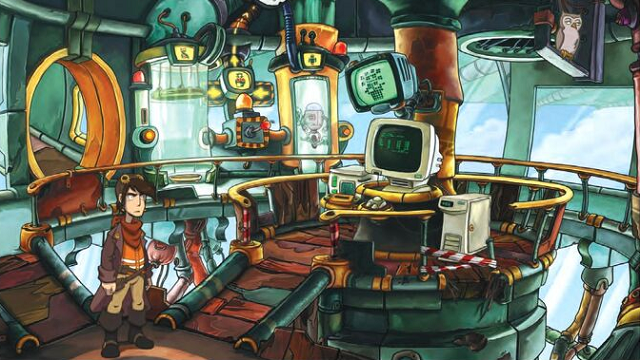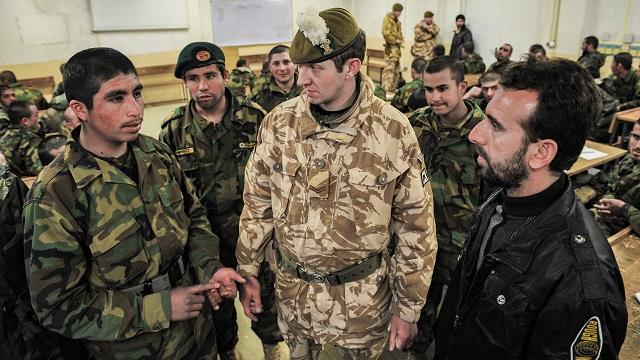-
QUALIFICATIONS
- For Linguists Worldwide
- For UK Public Services
- Preparation
- Policies & Regulation
-
MEMBERSHIP
- Join CIOL
- Professional Membership
- Affiliate Membership
- Chartered Linguist
- Already a member?
- Professional conduct
- Business & Corporate Partners
-
LANGUAGE ASSESSMENTS
- English
- All Other Languages
-
EVENTS & CPD
- Webinars & Events
- CIOL Conferences
- Networks
- CIOL Mentoring
-
NEWS & VOICES
- News & Voices
- CIOL eNews
- CIOL Awards
- The Linguist Magazine
- Jobs & Ads
-
RESOURCES
- For Translators & Interpreters
- For Universities & Students
- Standards & Norms
- CIOL & AI
- All Party Parliamentary Group
- In the UK
- UK Public Services
- Find-a-Linguist
Gaming to success
By Reza Shirmarz

Is gaming really a waste of time or could it be one of our greatest aids to language learning? Reza Shirmarz investigates.
Games have always been an efficient way to master new kinaesthetic and linguistic skills, especially for our youngsters. Computers and digital technology have not only revolutionised education systems, but also provided young people with new forms of learning and learning environments that are engaging and fun. As child psychiatrist David Shaffer noted, “games can bring together ways of knowing, ways of doing, ways of being, and ways of caring.”1
It took a couple of decades, and substantial technological, cinematic and computer graphic advancements, for gaming to transform from video games made of simple moving objects into an extremely complicated interactive and audiovisual phenomenon. Today, games are considered to be a means of cultural communication and social interaction that can boost the collaboration skills and technological abilities of gamers.
English is now the main language used in most internationally promoted games. Film, theatre and TV have long been used as supplementary resources for learning languages, especially English, but in recent years, gaming has surpassed them in terms of helping young learners of English, particularly in vocabulary and pronunciation.
This might also be the result of a remarkable increase in gaming participants over a very short period. From 2016 to 2019, the number of gamers worldwide increased by nearly 40% from 609 million to 850 million, according to Statista. In addition, the time gamers allocate to gaming seems to be much greater than the time movie fans spend watching films. This means gamers are more exposed to the English language.
Many ed tech companies have capitalised on this, applying the artistic and graphic tools of gaming (which itself borrows heavily from cinema, theatre and music) to create more pleasurable learning environments. The popular language-learning games Fluent, Professor Garfield, Bubbles, Fable, Deponia and Firewatch are good examples.
Evidence is emerging that the impact of gaming on English language learning differs around the world. Research from Vilnius University, Lithuania showed that the majority of students who play video games are influenced positively in terms of learning English. In addition, a significant number of students said that games such as Counter Strike: Global offensive (a first-person shooter game) and League of Legends (a multiplayer online battle arena) were their main source of English, while movies and cartoons were secondary sources. They also found that most gamers use the vocabulary they have acquired through gaming in real-life communication.
By contrast, when I surveyed high school students in Athens about the influence of on-screen entertainment on their language learning, most said they acquired English mainly from films. Only 28% said their English was remarkably influenced by video games. Gaming is less popular in Greece than in many other countries, so perhaps this is not surprising. According to Statista, Greece has a small share of the global games market (83rd in the world), while low internet speeds mean there is no real possibility of playing online.
Communication for the win
As an English teacher, I have observed several benefits of gaming. In addition to acquiring vocabulary (including single words, phrasal verbs, collocations, idioms, expressions and slang) and improving their pronunciation, students subconsciously master grammatical structures, enhancing their fluency. They also tend to retain what they have learnt more than those who have learnt through films, cartoons and novels. Further research in this area is required as much of the evidence, like my own observations, is largely anecdotal.
One of my students, Vasilis, told me that he frequently uses the language he picks up through gaming in real-life situations. The chunks and grammatical structures seem to be engraved in his memory, so he can easily recall them and use them confidently. In interactive gaming environments, words and phrases are repeated over and over through a variety of tasks, instructions and actions, which fosters a powerful language acquisition process. While TV and film are passive entertainment, gaming is active and repetitive.
Repetition is an effectual way for game designers to help participants hone their skills. The graphic design beefs up the digital event and makes the repetitive actions seem less boring. In order to complete each task and move successfully to the next one, the gamer needs to read and understand passages of varying length in English. Unlocking new stages enables them to learn new vocabulary. This might vary from beginner to advanced level, including basic nouns, verbs and adjectives such as ‘character’, ‘win’, ‘easy’, ‘quick’, ‘king’, ‘luck’, ‘map’ and ‘match’, and more complicated words and phrases, for example ‘cast a spell’, ‘fight for survival’, ‘hone your skills’, ‘high stakes’, ‘rivalry’ and ‘hilarious’.
Cut-scenes (in-game cinematics) are created as “dialogues between characters to set the mood, reward the player, introduce new gameplay elements, show the effects of a player’s actions, create emotional connections, improving pacing or foreshadowing future events”.2 They can help gamers to enrich their vocabulary, and improve their pronunciation.
Storytelling, especially in action-adventure games such as The Legend of Zelda, Tomb Raider and God of War, offers written material with numerous storylines, characters and dialogues. The storyline is sometimes so complicated that gamers need to read the text and listen to the same dialogue several times to gain a better understanding. In so doing, they acquire several words and chunks. This can also result in great improvements in their speaking skills.
Interacting with other players
Online forums in multiplayer games, especially mission-based ones, give gamers the opportunity to boost their reading and writing skills. In order to win games such as Call of Duty (a first-person shooter game) and PlayUnknown’s Battlegrounds (an online multiplayer survival game) they need to forge relationships with game characters and communicate with other players, and they need the language skills to do that effectively. Through such goal-based interactions they can identify and correct grammatical errors, and this, in turn, can greatly increase their chance of success in the game.
Learning English in such a playful environment is extremely effective because it minimises any classroom stress and formality. Accomplishing in-game objectives becomes a strong motivation for learners to absorb every linguistic aspect of the game and arrive at a sufficient understanding of each stage.
Perhaps that is why recent language teaching methods often have an increased focus on games and activities. Games are interactive, engaging and stress-free by nature, and cement the reciprocal relationship between teacher and students. I always use fun activities to introduce new linguistic skills in a friendly environment where the level of stress is minimised. This is a profoundly emotional experience, and what we learn in an emotional environment we are less prone to forget.
Notes
1 Shaffer, D, Halverson, R, James, PG and Squire, KR (2005) ‘Video Games and the Future of Learning’, WCER Working Paper No. 2005-4
2 Hancock, H (2002) ‘Better Gaming Design Through Cutscenes’. In Gamasutra: The art and business of making games
More
The Chartered Institute of Linguists (CIOL), Incorporated by Royal Charter, Registered in England and Wales Number RC 000808 and the IoL Educational Trust (IoLET), trading as CIOL Qualifications, Company limited by Guarantee, Registered in England and Wales Number 04297497 and Registered Charity Number 1090263. CIOL is a not-for-profit organisation.








